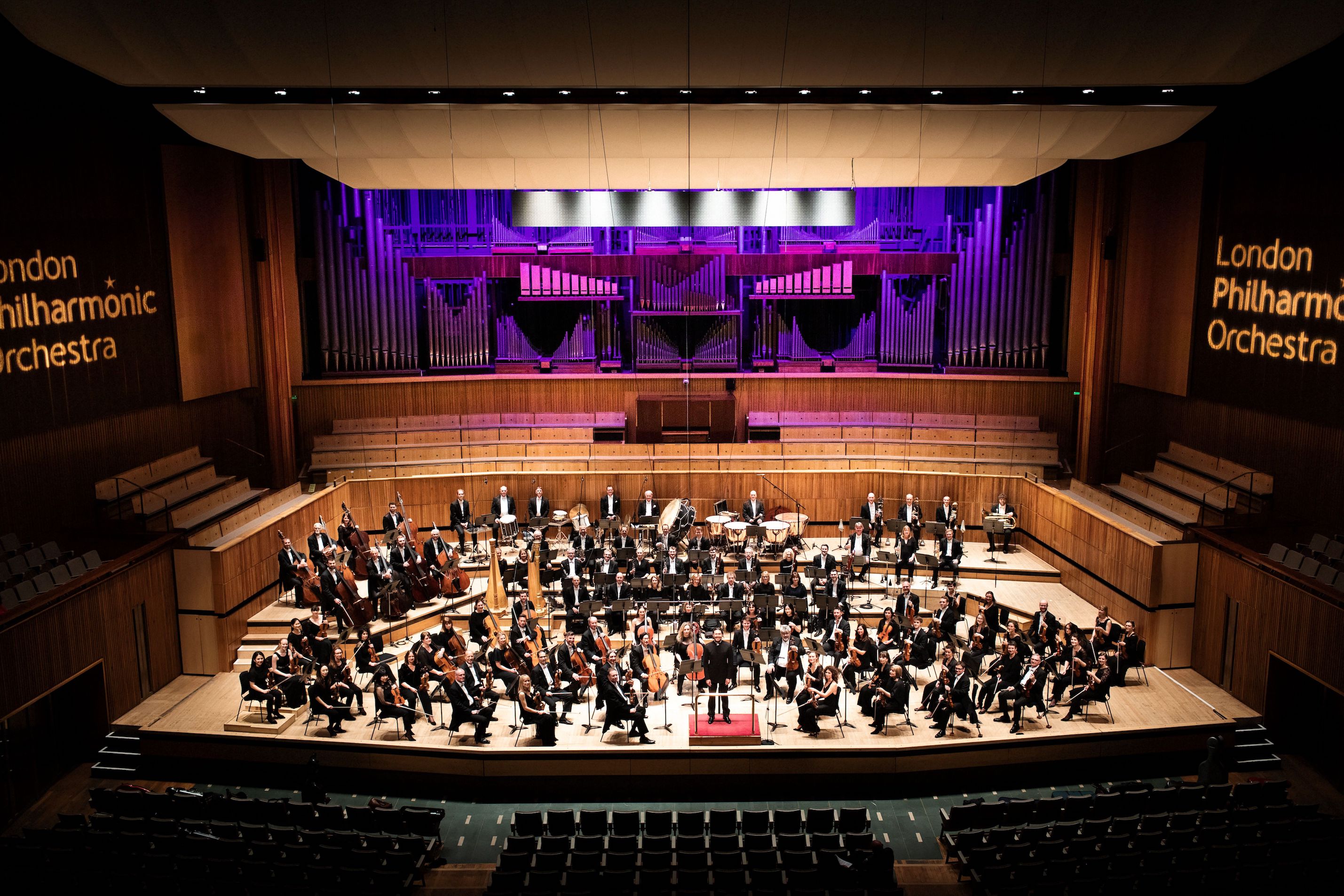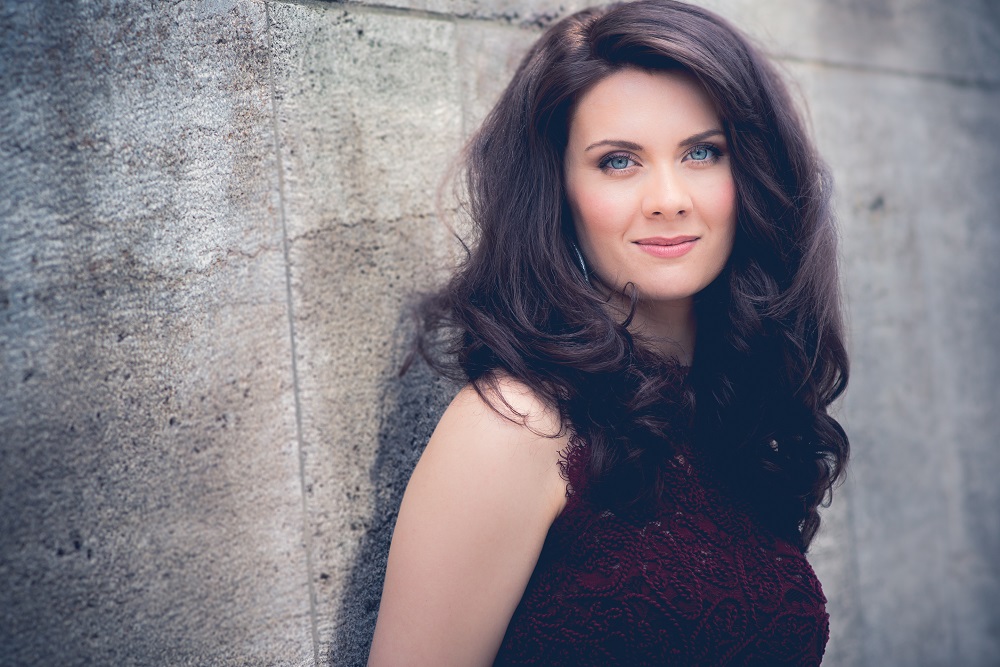Verdi Requiem, LPO, Gardner, RFH review – beyond the big noise | reviews, news & interviews
Verdi Requiem, LPO, Gardner, RFH review – beyond the big noise
Verdi Requiem, LPO, Gardner, RFH review – beyond the big noise
The LPO's incoming chief delivers a well-defined, strong-minded interpretation

You seldom expect to feel the breath of apocalypse and the terror of the grave amid the modestly rationalist architecture and passion-killer acoustics of the Royal Festival Hall.
In addition, the season of sniffles and coughs had felled 50 per cent of the solo line-up: Romanian soprano Iulia Maria Dan took over from Elza van den Heever, and ENO/Royal Opera stalwart Robert Murray from Armenian tenor Arsen Soghomonyan. Only Russian mezzo Ekaterina Gubanova and Hungarian bass-baritone Gábor Bretz survived unscathed. Despite the late replacements, the quartet gelled when they had to with remarkable fluency, with the see-sawing, give-and-take intimacy of a section such as the “Lux aeterna” trio finely blended and balanced. I sensed a few moments of under-rehearsed disarticulation, but nothing to dispel the sombre magic of the score.  Gardner, currently in charge at the Bergen Philharmonic but due to succeed the wonder-working Vladimir Jurowski at the LPO in 2021(the orchestra pictured above by Benjamin Ealovega), knows what a precious gift has landed in his hands. He took care not to allow the evening to sound like just another routine Verdi Requiem. Strong and generally close-knit, as the soloists were, Gardner’s interpretation let the suspenseful drama of the work emerge in every pinpointed orchestral part. Yes, he accentuated the dynamic leaps between pianissimo and fortissimo with the full-blooded relish you might expect: a theatre of sudden contrasts audible right from the blistering “Te decet hymnus” after the opening “Requiem”. But, just as Jurowski does, he also gives many distinctive voices in the LPO their chance to speak and to be heard. Which meant that – more than usually – you heard the great emotional arc of Verdi’s 1874 tribute to his departed friend and inspiration Alessandro Manzoni pass expressively not just among the four singers and choir but from instrument to instrument. The charge moved from the brooding basses led by Kevin Rundell to Juliette Bausor’s questing flute; while leader Pieter Schoeman headed string desks whose impassioned refinement lent the LPO a sheen and lustre worthy of the passions of this piece.
Gardner, currently in charge at the Bergen Philharmonic but due to succeed the wonder-working Vladimir Jurowski at the LPO in 2021(the orchestra pictured above by Benjamin Ealovega), knows what a precious gift has landed in his hands. He took care not to allow the evening to sound like just another routine Verdi Requiem. Strong and generally close-knit, as the soloists were, Gardner’s interpretation let the suspenseful drama of the work emerge in every pinpointed orchestral part. Yes, he accentuated the dynamic leaps between pianissimo and fortissimo with the full-blooded relish you might expect: a theatre of sudden contrasts audible right from the blistering “Te decet hymnus” after the opening “Requiem”. But, just as Jurowski does, he also gives many distinctive voices in the LPO their chance to speak and to be heard. Which meant that – more than usually – you heard the great emotional arc of Verdi’s 1874 tribute to his departed friend and inspiration Alessandro Manzoni pass expressively not just among the four singers and choir but from instrument to instrument. The charge moved from the brooding basses led by Kevin Rundell to Juliette Bausor’s questing flute; while leader Pieter Schoeman headed string desks whose impassioned refinement lent the LPO a sheen and lustre worthy of the passions of this piece.
Up above the band, the London Philharmonic Choir (directed by Neville Creed) impressed when they thundered but – even more so – when they almost-whispered; and, most of all, in the breath-stopping transitions from hush to roar and back again. Orchestra and choir together ensured that the later reprises of the “Dies irae” (awestruck salutations to Simon Carrington, Henry Baldwin and Andrew Barclay on the heavy drum artillery) would have shaken hell, or stormed heaven, even more thoroughly than its first blast. So much in the Requiem rest on knife-sharp breaks and shifts that communicate its terrifying mood-swings. Gardner made sure the choir and players shunned blurry ecclesiastical solemnity in favour of one fiercely articulated crisis of the soul after another, from the heavenly shock-and-awe of the offstage brass in “Tuba mirum” to the unearthly string shimmer in the “Hostias” and the heart-clutching massed choral attack of the “Sanctus”. Among the quartet of soloists, Iulia Maria Dan (pictured above by Kartal Karaderik) sang with a warm authority and sense of quiet command that made it hard to credit her stand-in status. If her “Recordare” had a sumptuous fruitiness, then the final monologue of the “Libera me” spanned the plaintive, the tender, the fearful and the joyful. And if she seemed to climb a bit strenuously up to its famous topmost peaks; well, this whole work tells of desperate striving towards eternal bliss rather than its smug possession. The mezzo soloist, Ekaterina Gubanova, had some ravishing moments, from a rapt duet with Dan in the “Agnus dei” to a star turn in the “Lacrimosa” quartet, beautifully paced by Gardner.
Among the quartet of soloists, Iulia Maria Dan (pictured above by Kartal Karaderik) sang with a warm authority and sense of quiet command that made it hard to credit her stand-in status. If her “Recordare” had a sumptuous fruitiness, then the final monologue of the “Libera me” spanned the plaintive, the tender, the fearful and the joyful. And if she seemed to climb a bit strenuously up to its famous topmost peaks; well, this whole work tells of desperate striving towards eternal bliss rather than its smug possession. The mezzo soloist, Ekaterina Gubanova, had some ravishing moments, from a rapt duet with Dan in the “Agnus dei” to a star turn in the “Lacrimosa” quartet, beautifully paced by Gardner.
Tenor Robert Murray felt uncertain at times, and his “Ingemisco” never quite gnawed and wrenched as it can. By the time of the “Offertorio” sections though (above all the “Hostias”), the voice truly glowed. As for Gábor Bretz, from the solo “Confutatis” to his role in “Lux aeterna” he displayed an unfussy control allied to varied colour and deep inwardness; a sense of the words and their feelings being fully inhabited rather than simply worn for the occasion. After Iulia Maria Dan had uttered her farewell pleas for liberation from eternal death, we streamed out into the Thames-side drizzle not just overwhelmed (a mediocre Requiem may do that) but revitalised. In Gardner’s hands, Verdi’s veering, lurching progress of the soul felt more like stimulus than sedative, a tonic injection, not a soupy bath. Such vehement lucidity promises much for his tenure with the LPO.
rating
Explore topics
Share this article
Add comment
The future of Arts Journalism
You can stop theartsdesk.com closing!
We urgently need financing to survive. Our fundraising drive has thus far raised £49,000 but we need to reach £100,000 or we will be forced to close. Please contribute here: https://gofund.me/c3f6033d
And if you can forward this information to anyone who might assist, we’d be grateful.

Subscribe to theartsdesk.com
Thank you for continuing to read our work on theartsdesk.com. For unlimited access to every article in its entirety, including our archive of more than 15,000 pieces, we're asking for £5 per month or £40 per year. We feel it's a very good deal, and hope you do too.
To take a subscription now simply click here.
And if you're looking for that extra gift for a friend or family member, why not treat them to a theartsdesk.com gift subscription?
more Classical music
 Kohout, Spence, Braun, Manchester Camerata, Huth, RNCM, Manchester review - joy, insight, imagination and unanimity
Celebration of the past with stars of the future at the Royal Northern College
Kohout, Spence, Braun, Manchester Camerata, Huth, RNCM, Manchester review - joy, insight, imagination and unanimity
Celebration of the past with stars of the future at the Royal Northern College
 Jansen, LSO, Pappano, Barbican review - profound and bracing emotional workouts
Great soloist, conductor and orchestra take Britten and Shostakovich to the edge
Jansen, LSO, Pappano, Barbican review - profound and bracing emotional workouts
Great soloist, conductor and orchestra take Britten and Shostakovich to the edge
 Jakub Hrůša and Friends in Concert, Royal Opera review - fleshcreep in two uneven halves
Bartók kept short, and a sprawling Dvořák choral ballad done as well as it could be
Jakub Hrůša and Friends in Concert, Royal Opera review - fleshcreep in two uneven halves
Bartók kept short, and a sprawling Dvořák choral ballad done as well as it could be
 Hadelich, BBC Philharmonic, Storgårds, Bridgewater Hall, Manchester review - youth, fate and pain
Prokofiev in the hands of a fine violinist has surely never sounded better
Hadelich, BBC Philharmonic, Storgårds, Bridgewater Hall, Manchester review - youth, fate and pain
Prokofiev in the hands of a fine violinist has surely never sounded better
 Monteverdi Choir, ORR, Heras-Casado, St Martin-in-the-Fields review - flames of joy and sorrow
First-rate soloists, choir and orchestra unite in a blazing Mozart Requiem
Monteverdi Choir, ORR, Heras-Casado, St Martin-in-the-Fields review - flames of joy and sorrow
First-rate soloists, choir and orchestra unite in a blazing Mozart Requiem
 Cho, LSO, Pappano, Barbican review - finely-focused stormy weather
Chameleonic Seong-Jin Cho is a match for the fine-tuning of the LSO’s Chief Conductor
Cho, LSO, Pappano, Barbican review - finely-focused stormy weather
Chameleonic Seong-Jin Cho is a match for the fine-tuning of the LSO’s Chief Conductor
 Classical CDs: Shrouds, silhouettes and superstition
Cello concertos, choral collections and a stunning tribute to a contemporary giant
Classical CDs: Shrouds, silhouettes and superstition
Cello concertos, choral collections and a stunning tribute to a contemporary giant
 Appl, Levickis, Wigmore Hall review - fun to the fore in cabaret and show songs
A relaxed evening of light-hearted fare, with the accordion offering unusual colours
Appl, Levickis, Wigmore Hall review - fun to the fore in cabaret and show songs
A relaxed evening of light-hearted fare, with the accordion offering unusual colours
 Lammermuir Festival 2025, Part 2 review - from the soaringly sublime to the zoologically ridiculous
Bigger than ever, and the quality remains astonishingly high
Lammermuir Festival 2025, Part 2 review - from the soaringly sublime to the zoologically ridiculous
Bigger than ever, and the quality remains astonishingly high
 BBC Proms: Ehnes, Sinfonia of London, Wilson review - aspects of love
Sensuous Ravel, and bittersweet Bernstein, on an amorous evening
BBC Proms: Ehnes, Sinfonia of London, Wilson review - aspects of love
Sensuous Ravel, and bittersweet Bernstein, on an amorous evening
 Presteigne Festival 2025 review - new music is centre stage in the Welsh Marches
Music by 30 living composers, with Eleanor Alberga topping the bill
Presteigne Festival 2025 review - new music is centre stage in the Welsh Marches
Music by 30 living composers, with Eleanor Alberga topping the bill
 Lammermuir Festival 2025 review - music with soul from the heart of East Lothian
Baroque splendour, and chamber-ensemble drama, amid history-haunted lands
Lammermuir Festival 2025 review - music with soul from the heart of East Lothian
Baroque splendour, and chamber-ensemble drama, amid history-haunted lands

Comments
I reckon the Arts Desk Review